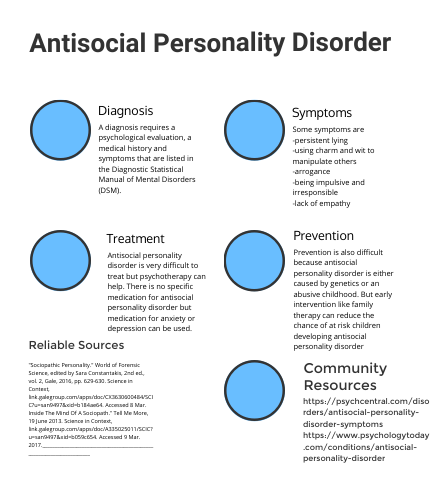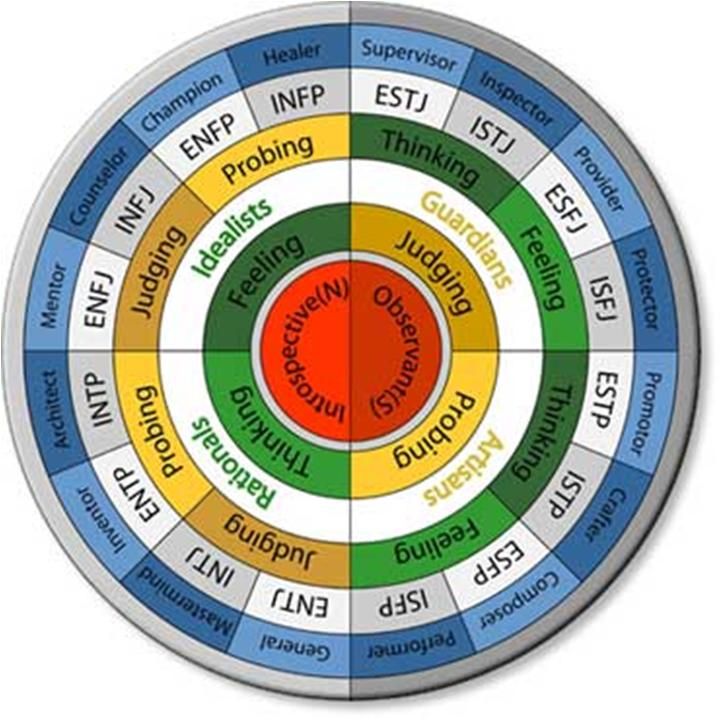Controlling your temper
25 Tips to Manage Your Anger and Feel Calmer
Anger is a normal feeling and can be a positive emotion when it helps you work through issues or problems, whether that’s at work or at home.
However, anger can become problematic if it leads to aggression, outbursts, or even physical altercations.
Anger control is important for helping you avoid saying or doing something you may regret. Before anger escalates, you can use specific strategies for controlling anger.
Here are 25 ways you can control your anger:
1. Count down
Count down (or up) to 10. If you’re really mad, start at 100. In the time it takes you to count, your heart rate will slow, and your anger will likely subside.
2. Take a breather
Your breathing becomes shallower and speeds up as you grow angry. Reverse that trend (and your anger) by taking slow, deep breaths from your nose and exhaling out of your mouth for several moments.
3. Go walk around
Exercise can help calm your nerves and reduce anger. Go for a walk, ride your bike, or hit a few golf balls. Anything that gets your limbs pumping is good for your mind and body.
4. Relax your muscles
Progressive muscle relaxation calls on you to tense and slowly relax various muscle groups in your body, one at a time. As you tense and release, take slow, deliberate breaths.
5. Repeat a mantra
Find a word or phrase that helps you calm down and refocus. Repeat that word again and again to yourself when you’re upset. “Relax,” “Take it easy, and “You’ll be OK” are all good examples.
6. Stretch
Neck rolls and shoulder rolls are good examples of nonstrenuous yoga-like movements that can help you control your body and harness your emotions. No fancy equipment required.
7. Mentally escape
Slip into a quiet room, close your eyes, and practice visualizing yourself in a relaxing scene. Focus on details in the imaginary scene: What color is the water? How tall are the mountains? What do the chirping birds sound like? This practice can help you find calm amidst anger.
8. Play some tunes
Let music carry you away from your feelings. Put in earbuds or slip out to your car. Crank up your favorite music and hum, bop, or sashay your anger away.
9. Stop talking
When you’re steamed, you may be tempted to let the angry words fly, but you’re more likely to do harm than good. Pretend your lips are glued shut, just like you did as a kid. This moment without speaking will give you time to collect your thoughts.
10. Take a timeout
Give yourself a break. Sit away from others. In this quiet time, you can process events and return your emotions to neutral. You may even find this time away from others is so helpful you want to schedule it into your daily routine.
11. Take action
Harness your angry energy. Sign a petition. Write a note to an official. Do something good for someone else. Pour your energy and emotions into something that’s healthy and productive.
12. Write in your journal
What you can’t say, perhaps you can write. Jot down what you’re feeling and how you want to respond. Processing it through the written word can help you calm down and reassess the events leading up to your feelings.
Jot down what you’re feeling and how you want to respond. Processing it through the written word can help you calm down and reassess the events leading up to your feelings.
13. Find the most immediate solution
You might be angry that your child has once again left their room a mess before going to visit a friend. Shut the door. You can temporarily end your anger by putting it out of your view. Look for similar resolutions in any situations.
14. Rehearse your response
Prevent an outburst by rehearsing what you’re going to say or how you’re going to approach the problem in the future. This rehearsal period gives you time to role-play several possible solutions, too.
15. Picture a stop sign
The universal symbol to stop can help you calm down when you’re angry. It’s a quick way to help you visualize the need to halt yourself, your actions, and walk away from the moment.
16. Change your routine
If your slow commute to work makes you angry before you’ve even had coffee, find a new route. Consider options that may take longer but leave you less upset in the end.
Consider options that may take longer but leave you less upset in the end.
17. Talk to a friend
Don’t stew in the events that made you angry. Help yourself process what happened by talking with a trusted, supportive friend who can possibly provide a new perspective.
18. Laugh
Nothing upends a bad mood like a good one. Diffuse your anger by looking for ways to laugh, whether that’s playing with your kids, watching stand-up, or scrolling memes.
19. Practice gratitude
Take a moment to focus on what’s right when everything feels wrong. Realizing how many good things you have in your life can help you neutralize anger and turn around the situation.
20. Set a timer
The first thing that comes to mind when you’re angry likely isn’t the thing you should say. Give yourself a set time before you respond. This time will help you be calmer and more concise.
21. Write a letter
Write a letter or email to the person that made you angry. Then, delete it. Often, expressing your emotions in some form is all you want, even if it’s in something that will never be seen.
Then, delete it. Often, expressing your emotions in some form is all you want, even if it’s in something that will never be seen.
22. Imagine forgiving them
Finding the courage to forgive someone who has wronged you takes a lot of emotional skill. If you can’t go that far, you can at least pretend that you’re forgiving them, and you’ll feel your anger slip away.
23. Practice empathy
Try to walk in the other person’s shoes and see the situation from their perspective. When you tell the story or relive the events as they saw it, you may gain a new understanding and become less angry.
24. Express your anger
It’s OK to say how you feel, as long as you handle it in the right way. Ask a trusted friend to help you be accountable to a calm response. Outbursts solve no problems, but mature dialogue can help reduce your stress and ease your anger. It may also prevent future problems.
25. Find a creative channel
Turn your anger into a tangible production. Consider painting, gardening, or writing poetry when you’re upset. Emotions are powerful muses for creative individuals. Use yours to reduce anger.
Consider painting, gardening, or writing poetry when you’re upset. Emotions are powerful muses for creative individuals. Use yours to reduce anger.
The bottom line
Anger is a normal emotion that everyone experiences from time to time. However, if you find your anger turns to aggression or outbursts, you need to find healthy ways to deal with anger.
If these tips don’t help, consider talking with your doctor. A mental health specialist or therapist can help you work through underlying factors that may contribute to anger and other emotional issues.
Anger Management - HelpGuide.org
communication
Is your temper hijacking your life? These tips and techniques can help you get anger under control and express your feelings in healthier ways.
Understanding anger
Anger is a normal, healthy emotion, neither good nor bad. Like any emotion, it conveys a message, telling you that a situation is upsetting, unjust, or threatening. If your knee-jerk reaction to anger is to explode, however, that message never has a chance to be conveyed.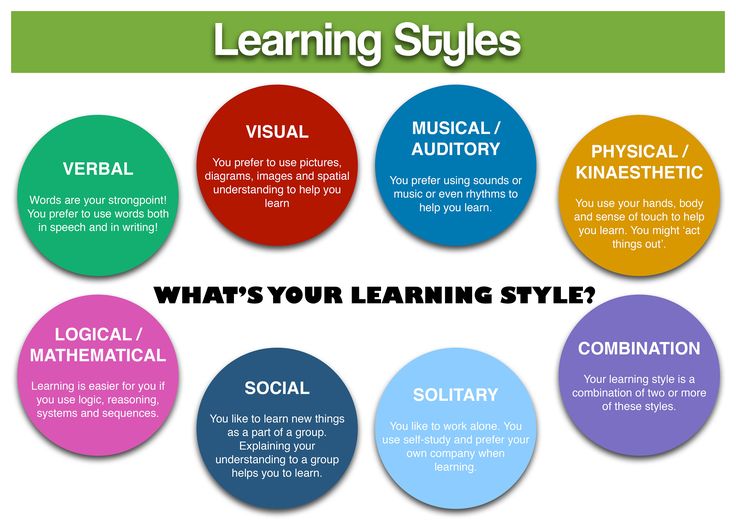 So, while it’s perfectly normal to feel angry when you’ve been mistreated or wronged, anger becomes a problem when you express it in a way that harms yourself or others.
So, while it’s perfectly normal to feel angry when you’ve been mistreated or wronged, anger becomes a problem when you express it in a way that harms yourself or others.
You might think that venting your anger is healthy, that the people around you are too sensitive, that your anger is justified, or that you need to show your fury to get respect. But the truth is that anger is much more likely to have a negative impact on the way people see you, impair your judgment, and get in the way of success.
Effects of anger
Chronic anger that flares up all the time or spirals out of control can have serious consequences for your:
- Physical health. Constantly operating at high levels of stress and anger makes you more susceptible to heart disease, diabetes, a weakened immune system, insomnia, and high blood pressure.
- Mental health. Chronic anger consumes huge amounts of mental energy, and clouds your thinking, making it harder to concentrate or enjoy life.
 It can also lead to stress, depression, and other mental health problems.
It can also lead to stress, depression, and other mental health problems. - Career. Constructive criticism, creative differences, and heated debate can be healthy. But lashing out only alienates your colleagues, supervisors, or clients and erodes their respect.
- Relationships. Anger can cause lasting scars in the people you love most and get in the way of friendships and work relationships. Explosive anger makes it hard for others to trust you, speak honestly, or feel comfortable—and is especially damaging to children.
If you have a hot temper, you may feel like it’s out of your hands and there’s little you can do to tame the beast. But you have more control over your anger than you think. With insight about the real reasons for your anger and these anger management tools, you can learn to express your emotions without hurting others and keep your temper from hijacking your life.
| Myths and facts about anger |
Myth: I shouldn't “hold in” my anger. It's healthy to vent and let it out. It's healthy to vent and let it out.Fact: While it's true that suppressing and ignoring anger is unhealthy, venting is no better. Anger is not something you have to “let out” in an aggressive way in order to avoid blowing up. In fact, outbursts and tirades only fuel the fire and reinforce your anger problem. |
| Myth: Anger, aggression, and intimidation help me earn respect and get what I want. Fact: Respect doesn't come from bullying others. People may be afraid of you, but they won't respect you if you can't control yourself or handle opposing viewpoints. Others will be more willing to listen to you and accommodate your needs if you communicate in a respectful way. |
| Myth: I can't help myself. Anger isn't something you can control. Fact: You can't always control the situation you're in or how it makes you feel, but you can control how you express your anger. |
How anger management can help you
Many people think that anger management is about learning to suppress your anger. But never getting angry is not a healthy goal. Anger will come out regardless of how hard you try to tamp it down. The true goal of anger management isn’t to suppress feelings of anger, but rather to understand the message behind the emotion and express it in a healthy way without losing control. When you do, you’ll not only feel better, you’ll also be more likely to get your needs met, be better able to manage conflict in your life, and strengthen your relationships.
Mastering the art of anger management takes work, but the more you practice, the easier it will get. And the payoff is huge. Learning to control your anger and express it appropriately will help you build better relationships, achieve your goals, and lead a healthier, more satisfying life.
With over 25,000 licensed counselors, BetterHelp has a therapist that fits your needs. It's easy, affordable, and convenient.
GET 20% OFF
Online-Therapy.com is a complete toolbox of support, when you need it, on your schedule. It only takes a few minutes to sign up.
GET 20% OFF
Teen Counseling is an online therapy service for teens and young adults. Connect with your counselor by video, phone, or chat.
GET 20% OFF
Tip 1: Explore what's really behind your anger
Have you ever gotten into an argument over something silly? Big fights often happen over something small, like a dish left out or being ten minutes late. But there’s usually a bigger issue behind it. If you find your irritation and anger rapidly rising, ask yourself, “What am I really angry about?” Identifying the real source of frustration will help you communicate your anger better, take constructive action, and work towards a resolution.
Is your anger masking other feelings such as embarrassment, insecurity, hurt, shame, or vulnerability? If your knee-jerk response in many situations is anger, it’s likely that your temper is covering up your true feelings. This is especially likely if you grew up in a family where expressing feelings was strongly discouraged. As an adult, you may have a hard time acknowledging feelings other than anger.
This is especially likely if you grew up in a family where expressing feelings was strongly discouraged. As an adult, you may have a hard time acknowledging feelings other than anger.
Anger can also mask anxiety. When you perceive a threat, either real or imagined, your body activates the “fight or flight” response. In the case of the “fight” response, it can often manifest itself as anger or aggression. To change your response, you need to find out what’s causing you to feel anxious or scared.
Anger problems can stem from what you learned as a child. If you watched others in your family scream, hit each other, or throw things, you might think this is how anger is supposed to be expressed.
Anger can be a symptom of another underlying health problem, such as depression (especially in men), trauma, or chronic stress.
Clues that there's more to your anger than meets the eye
You have a hard time compromising. Is it hard for you to understand other people’s points of view, and even harder to concede a point? If you grew up in a family where anger was out of control, you may remember how the angry person got their way by being the loudest and most demanding. Compromising might bring up scary feelings of failure and vulnerability.
Is it hard for you to understand other people’s points of view, and even harder to concede a point? If you grew up in a family where anger was out of control, you may remember how the angry person got their way by being the loudest and most demanding. Compromising might bring up scary feelings of failure and vulnerability.
You view different opinions as a personal challenge. Do you believe that your way is always right and get angry when others disagree? If you have a strong need to be in control or a fragile ego, you may interpret other perspectives as a challenge to your authority, rather than simply a different way of looking at things.
You have trouble expressing emotions other than anger. Do you pride yourself on being tough and in control? Do you feel that emotions like fear, guilt, or shame don’t apply to you? Everyone has those emotions so you may be using anger as a cover for them. If you are uncomfortable with different emotions, disconnected, or stuck on an angry one-note response to situations, it’s important to get back in touch with your feelings. HelpGuide’s free Emotional Intelligence Toolkit can help.
HelpGuide’s free Emotional Intelligence Toolkit can help.
While you might feel that you just explode into anger without warning, there are in fact physical warning signs in your body. Becoming aware of your own personal signs that your temper is starting to boil allows you to take steps to manage your anger before it gets out of control.
Pay attention to the way anger feels in your body
- Knots in your stomach
- Clenching your hands or jaw
- Feeling clammy or flushed
- Breathing faster
- Headaches
- Pacing or needing to walk around
- “Seeing red”
- Having trouble concentrating
- Pounding heart
- Tensing your shoulders
Tip 3: Identify your triggers
Stressful events don’t excuse anger, but understanding how these events affect you can help you take control of your environment and avoid unnecessary aggravation. Look at your regular routine and try to identify activities, times of day, people, places, or situations that trigger irritable or angry feelings.
Maybe you get into a fight every time you go out for drinks with a certain group of friends. Or maybe the traffic on your daily commute drives you crazy. When you identify your triggers, think about ways to either avoid them or view the situations differently so they don’t make your blood boil.
Negative thought patterns that can trigger anger
You may think that external factors—the insensitive actions of other people, for example, or frustrating situations—are causing your anger. But anger problems have less to do with what happens to you than how you interpret and think about what happened.
Common negative thinking patterns that trigger and fuel anger include:
- Overgeneralizing. For example, “You ALWAYS interrupt me. You NEVER consider my needs. EVERYONE disrespects me. I NEVER get the credit I deserve.”
- Obsessing over “shoulds” and “musts.” Having a rigid view of the way a situation should or must go and getting angry when reality doesn’t line up with this vision.

- Mind reading and jumping to conclusions. Assuming you “know” what someone else is thinking or feeling—that they intentionally upset you, ignored your wishes, or disrespected you.
- Collecting straws. Looking for things to get upset about, usually while overlooking or blowing past anything positive. Letting these small irritations build and build until you reach the “final straw” and explode, often over something relatively minor.
- Blaming. When anything bad happens or something goes wrong, it’s always someone else’s fault. You tell yourself, “life’s not fair,” or blame others for your problems rather than taking responsibility for your own life.
When you identify the thought patterns that fuel your anger, you can learn to reframe how you think about things. Ask yourself: What’s the evidence that the thought is true? That it’s not true? Is there a more positive, realistic way of looking at a situation? What would I say to a friend who was thinking these things?
Tip 4: Learn ways to cool down quickly
Once you know how to recognize the warning signs that your temper is rising and anticipate your triggers, you can act quickly to deal with your anger before it spins out of control.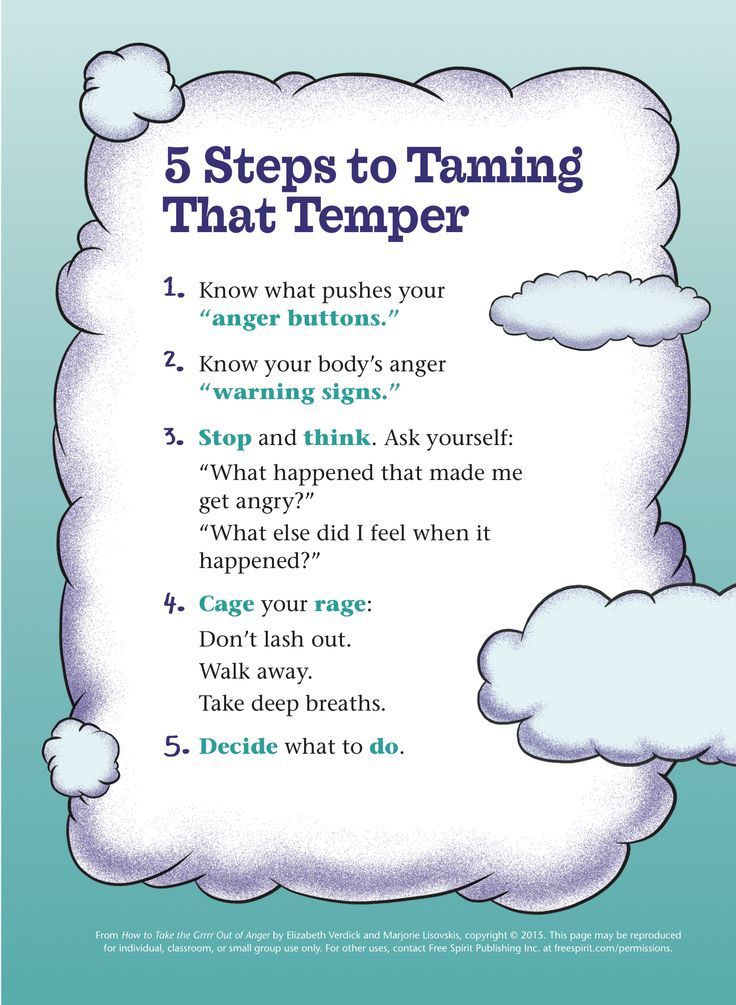 There are many techniques that can help you cool down and keep your anger in check.
There are many techniques that can help you cool down and keep your anger in check.
Focus on the physical sensations of anger. While it may seem counterintuitive, tuning into the way your body feels when you’re angry often lessens the emotional intensity of your anger.
Take some deep breaths. Deep, slow breathing helps counteract rising tension. The key is to breathe deeply from the abdomen, getting as much fresh air as possible into your lungs.
Get moving. A brisk walk around the block is a great idea. Physical activity releases pent-up energy so you can approach the situation with a cooler head.
Use your senses. You can use sight, smell, hearing, touch, and taste to quickly relieve stress and cool down. You might try listening to a favorite piece of music, looking at a treasured photo, savoring a cup of tea, or stroking a pet.
Stretch or massage areas of tension. Roll your shoulders if you are tensing them, for example, or gently massage your neck and scalp.
Slowly count to ten. Focus on the counting to let your rational mind catch up with your feelings. If you still feel out of control by the time you reach ten, start counting again.
Give yourself a reality check
When you start getting upset about something, take a moment to think about the situation. Ask yourself:
- How important is it in the grand scheme of things?
- Is it really worth getting angry about it?
- Is it worth ruining the rest of my day?
- Is my response appropriate to the situation?
- Is there anything I can do about it?
- Is taking action worth my time?
Tip 5: Find healthier ways to express your anger
If you’ve decided that the situation is worth getting angry about and there’s something you can do to make it better, the key is to express your feelings in a healthy way. Learning how to resolve conflict in a positive way will help you strengthen your relationships rather than damaging them.
Always fight fair. It’s okay to be upset at someone, but if you don’t fight fair, the relationship will quickly break down. Fighting fair allows you to express your own needs while still respecting others.
Make the relationship your priority. Maintaining and strengthening the relationship, rather than “winning” the argument, should always be your first priority. Respect the other person and their viewpoint.
Focus on the present. Once you are in the heat of arguing, it’s easy to start throwing past grievances into the mix. Rather than looking to the past and assigning blame, focus on what you can do in the present to solve the problem.
Be willing to forgive. Resolving conflict is impossible if you’re unwilling or unable to forgive. Resolution lies in releasing the urge to punish, which can never compensate for our losses and only adds to our injury by further depleting and draining our lives.
Take five if things get too heated.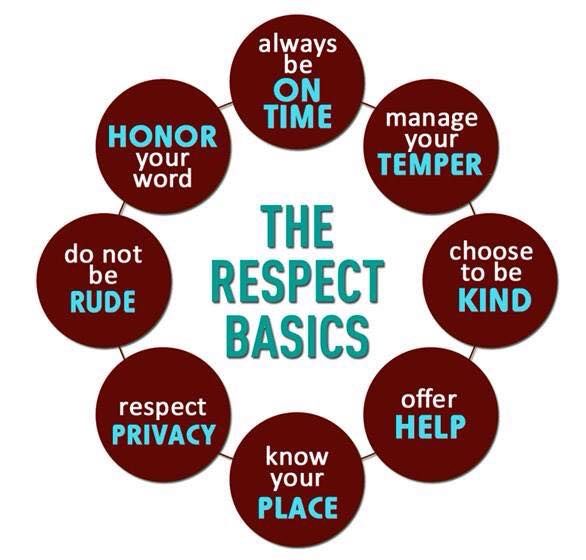 If your anger starts to spiral out of control, remove yourself from the situation for a few minutes or for as long as it takes you to cool down.
If your anger starts to spiral out of control, remove yourself from the situation for a few minutes or for as long as it takes you to cool down.
Know when to let something go. If you can’t come to an agreement, agree to disagree. It takes two people to keep an argument going. If a conflict is going nowhere, you can choose to disengage and move on.
Tip 6: Stay calm by taking care of yourself
Taking care of your overall mental and physical well-being can help ease tension and diffuse anger problems.
Manage stress. If your stress levels are through the roof, you’re more likely to struggle controlling your temper. Try practicing relaxation techniques such as mindfulness meditation, progressive muscle relaxation, or deep breathing. You’ll feel calmer and more in control of your emotions.
Talk to someone you trust. Nothing eases stress more effectively than chatting face-to-face with a friend or loved one. The person doesn’t have to provide answers, they just need to be a good listener.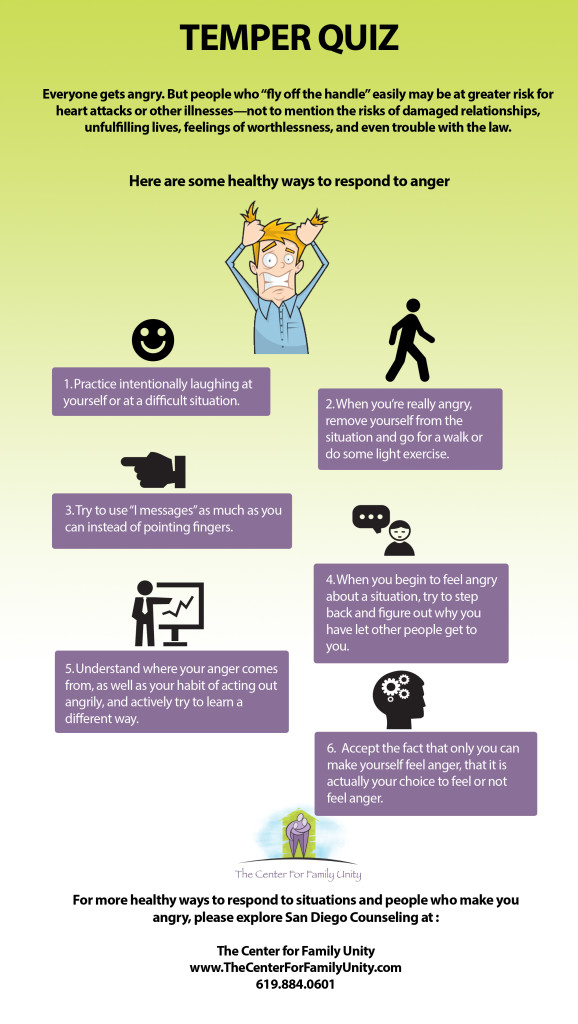 But talking about your feelings and seeking a different perspective on a situation is not the same as venting. Simply venting your anger at someone will only fuel your temper and reinforce your anger problem.
But talking about your feelings and seeking a different perspective on a situation is not the same as venting. Simply venting your anger at someone will only fuel your temper and reinforce your anger problem.
Get enough sleep. A lack of sleep can exacerbate negative thoughts and leave you feeling agitated and short-tempered. Try to get seven to nine hours of good quality sleep.
Exercise regularly. It’s an effective way to burn-off tension and ease stress, and it can leave you feeling more relaxed and positive throughout the day. Aim for at least 30 minutes on most days, broken up into shorter periods if that’s easier.
Be smart about alcohol and drugs. They lower your inhibitions and can make it even harder to control your anger. Even consuming too much caffeine can make you more irritable and prone to anger.
Tip 7: Use humor to relieve tension
When things get tense, humor and playfulness can help you lighten the mood, smooth over differences, reframe problems, and keep things in perspective.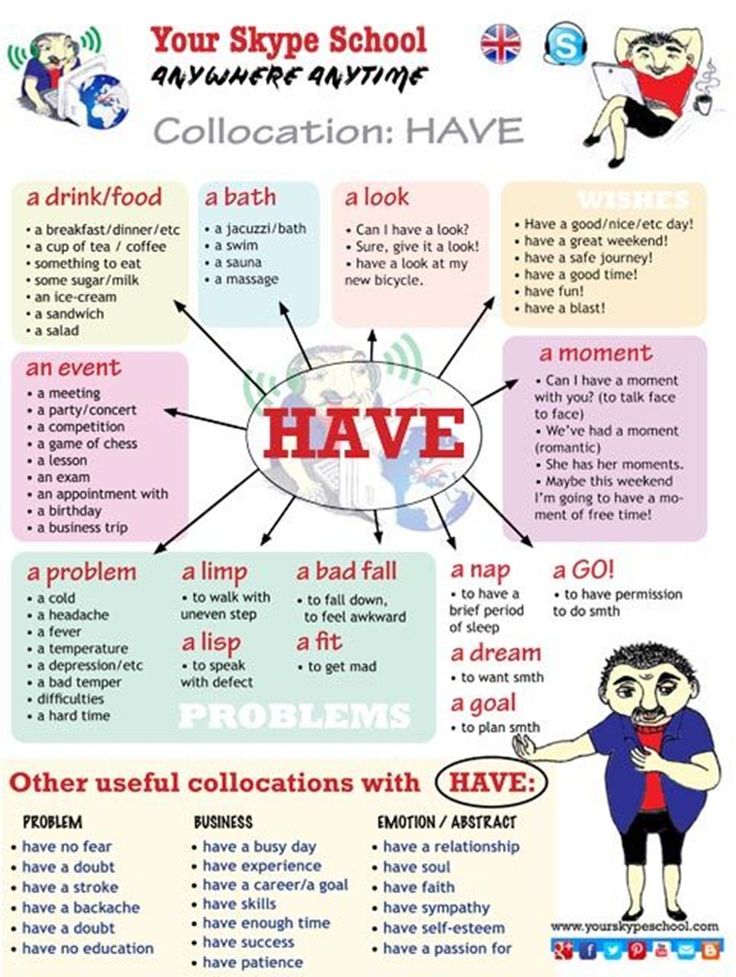 When you feel yourself getting angry in a situation, try using a little lighthearted humor. It can allow you to get your point across without getting the other person’s defenses up or hurting their feelings.
When you feel yourself getting angry in a situation, try using a little lighthearted humor. It can allow you to get your point across without getting the other person’s defenses up or hurting their feelings.
However, it’s important that you laugh with the other person, not at them. Avoid sarcasm, mean-spirited humor. If in doubt, start by using self-deprecating humor. We all love people who are able to gently poke fun at their own failings. After all, we’re all flawed and we all make mistakes.
So, if you’ve made a mistake at work or you’ve just spilled coffee over yourself, instead of getting angry or picking a fight, try making a joke about it. Even if the joke falls flat or comes out wrong, the only person you risk offending is yourself.
When humor and play are used to reduce tension and anger, a potential conflict can even become an opportunity for greater connection and intimacy.
Tip 8: Recognize if you need professional help
If, despite putting these previous anger management techniques into practice, your anger is still spiraling out of control, or if you’re getting into trouble with the law or hurting others, you need more help.
Anger management classes allow you to meet others coping with the same struggles and learn tips and techniques for managing your anger.
Therapy, either group or individual, can be a great way to explore the reasons behind your anger and identify triggers. Therapy can also provide a safe place to practice new skills for expressing anger.
Anger isn’t the real problem in an abusive relationship
Despite what many believe, domestic violence and abuse does not happen due to the abuser’s loss of control over their temper. Rather, it’s a deliberate choice to control another person. If you are abusive towards your spouse or partner, know that you need specialized treatment, not regular anger management classes.
Authors: Melinda Smith, M.A. and Jeanne Segal, Ph.D.
- References
Trauma- and Stressor-Related Disorders.
 (2013). In Diagnostic and Statistical Manual of Mental Disorders. American Psychiatric Association. https://doi.org/10.1176/appi.books.9780890425787.x07_Trauma_and_Stressor_Related_Disorders
(2013). In Diagnostic and Statistical Manual of Mental Disorders. American Psychiatric Association. https://doi.org/10.1176/appi.books.9780890425787.x07_Trauma_and_Stressor_Related_DisordersWilliams, Riccardo. “Anger as a Basic Emotion and Its Role in Personality Building and Pathological Growth: The Neuroscientific, Developmental and Clinical Perspectives.” Frontiers in Psychology 8 (November 7, 2017): 1950. https://doi.org/10.3389/fpsyg.2017.01950
Staicu, ML, and M Cuţov. “Anger and Health Risk Behaviors.” Journal of Medicine and Life 3, no. 4 (November 15, 2010): 372–75. https://www.ncbi.nlm.nih.gov/pmc/articles/PMC3019061/
Ba, Al Ubaidi, and Al Ubaidi Ba. “Control Excessive Anger before It Controls Your Life.” Accessed November 17, 2021. https://doi.org/10.23937/2469-5793/1510088
Zarshenas, Ladan, Mehdi Baneshi, Farkhondeh Sharif, and Ebrahim Moghimi Sarani. “Anger Management in Substance Abuse Based on Cognitive Behavioral Therapy: An Interventional Study.
 ” BMC Psychiatry 17, no. 1 (November 23, 2017): 375. https://doi.org/10.1186/s12888-017-1511-z
” BMC Psychiatry 17, no. 1 (November 23, 2017): 375. https://doi.org/10.1186/s12888-017-1511-zNasir, Rohany, and Norisham Abd Ghani. “Behavioral and Emotional Effects of Anger Expression and Anger Management among Adolescents.” Procedia – Social and Behavioral Sciences, 2nd World Conference on Psychology and Sociology, PSYSOC 2013, 27-29 November 2013, Brussels, Belgium, 140 (August 22, 2014): 565–69. https://doi.org/10.1016/j.sbspro.2014.04.471
Bodenmann, Guy, Nathalie Meuwly, Thomas N. Bradbury, Simone Gmelch, and Thomas Ledermann. “Stress, Anger, and Verbal Aggression in Intimate Relationships: Moderating Effects of Individual and Dyadic Coping.” Journal of Social and Personal Relationships 27, no. 3 (May 1, 2010): 408–24. https://doi.org/10.1177/0265407510361616
Fehr, Beverley, Mark Baldwin, Lois Collins, Suzanne Patterson, and Riva Benditt. “Anger in Close Relationships: An Interpersonal Script Analysis.” 25, no. 3 (March 1, 1999): 299–312.
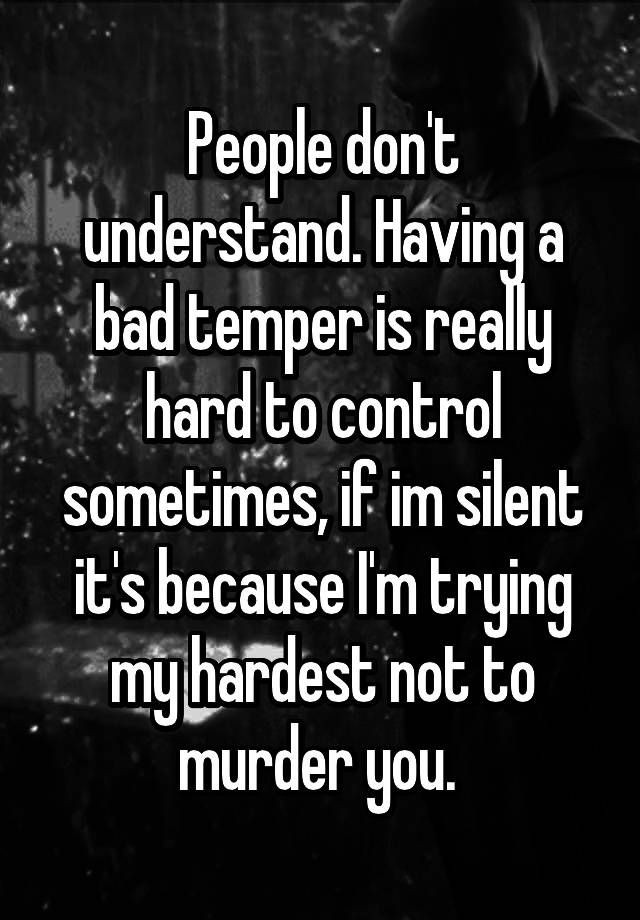 https://doi.org/10.1177/0146167299025003003
https://doi.org/10.1177/0146167299025003003Candelaria, Ashley M., Alicia L. Fedewa, and Soyeon Ahn. “The Effects of Anger Management on Children’s Social and Emotional Outcomes: A Meta-Analysis.” School Psychology International 33, no. 6 (December 1, 2012): 596–614. https://doi.org/10.1177/0143034312454360
Okuda, Mayumi, Julia Picazo, Mark Olfson, Deborah S. Hasin, Shang-Min Liu, Silvia Bernardi, and Carlos Blanco. “Prevalence and Correlates of Anger in the Community: Results from a National Survey.” CNS Spectrums 20, no. 2 (April 2015): 130–39. https://doi.org/10.1017/S1092852914000182
Saghir, Zahid, Javeria N. Syeda, Adnan S. Muhammad, and Tareg H. Balla Abdalla. “The Amygdala, Sleep Debt, Sleep Deprivation, and the Emotion of Anger: A Possible Connection?” Cureus 10, no. 7 (July 2, 2018): e2912. https://doi.org/10.7759/cureus.2912
Controlling Anger Before it Controls You – Origins of excessive anger, tips on coping, and when to seek more help. (American Psychological Association)
(American Psychological Association)
What Your Anger May Be Hiding – Reasons behind excessive anger. (Psychology Today)
Anger and Trauma – How anger should be treated when it's a symptom of PTSD. (National Center for PTSD)
When You Love an Angry Person – Tips on fighting fair, ways to approach a loved one, and when to seek more help. (Get Your Angries Out)
Last updated: December 5, 2022
90,000 MDOU "Kindergarten No. 23" Chamomile of the Tutaevsky municipal districtDoes the child's temperament affect its development?
The word "temperament" has Latin origin and literally means "ratio of parts".
There are 4 main types of temperament: sanguine, phlegmatic, melancholic, choleric.
Every child is born with an inherited temperament. You can't change it, but you can learn to control it. Nature has made us different from each other, each has its own individual temperament.
 By realizing this, parents will be able to better understand their child. The temperament of the child depends on the reaction of the nervous system to some irritants: to the intonation of the mother, the feeling of hunger, to pain, resentment, etc. Everyone reacts differently. One child, feeling discomfort, begins to cry, the other screams indignantly, and the third does not pay attention to the inconvenience. Signals about what is happening come to certain parts of the brain, stimulating their activity. Children due to the immaturity of the brain and lack of social experience are completely dependent on the innate temperament. But, growing up, the child learns the lessons of education, takes an example from the elders. He learns to endure, to show willpower, or vice versa to retreat in front of difficulties. The task of parents is to help children master the mechanisms that will help to cope with innate temperament. nine0006
By realizing this, parents will be able to better understand their child. The temperament of the child depends on the reaction of the nervous system to some irritants: to the intonation of the mother, the feeling of hunger, to pain, resentment, etc. Everyone reacts differently. One child, feeling discomfort, begins to cry, the other screams indignantly, and the third does not pay attention to the inconvenience. Signals about what is happening come to certain parts of the brain, stimulating their activity. Children due to the immaturity of the brain and lack of social experience are completely dependent on the innate temperament. But, growing up, the child learns the lessons of education, takes an example from the elders. He learns to endure, to show willpower, or vice versa to retreat in front of difficulties. The task of parents is to help children master the mechanisms that will help to cope with innate temperament. nine0006
How can I find out my child's temperament?
Children with choleric. Characteristics:
Characteristics:
restless child;
intemperate, irascible;
impatient;
resourceful in a dispute;
has sharp, jerky movements
tirelessly strives for the new;
aggressive bully;
sharp in dealing with people;
resolute and enterprising;
is sometimes stubborn;
prone to violent mood swings.
quick to act and decide;
has fast, confused speech;
unforgiving and inoffensive;
Children with a predominance of choleric temperament resemble a hurricane and a tornado rolled into one. Possessing extreme nervous and emotional imbalance, choleric people "flirt", that is, they cannot stop in time. They need a change of impressions, but strong impressions quickly tire them. nine0017
Hence their incredible ability to get irritated over trifles, irascibility and almost complete lack of patience. If your choleric kid has drawn some beautiful drawing, he will demand that you stop everything and IMMEDIATELY look at the drawing. If you do not look at the drawing right away, the child will instantly lose his temper.
If you do not look at the drawing right away, the child will instantly lose his temper.
Cholerics generally resemble a mine in their nervous organization: one has only to step into the danger zone, as an explosion immediately follows. The activity of choleric people is uneven, pulsating. Carried away by something, they act very energetically and intensely, but this does not last long. Choleric people quickly get tired and cannot continue the activity they are interested in. Nervous decline and loss of strength quite naturally “pour out” into irritation, which, as it grows, finds a way out either in conflict or in a nervous breakdown. If the kid fails to build what he has in mind from the constructor, he will soon scatter this constructor around the room with indignation. And he will growl at anyone who turns up to him "under the hot hand." And weep tears of anger and impotence. Or rather, tears of anger at their own impotence. And the misunderstanding of others. For choleric people, the period of early childhood is very difficult, when their skills and abilities are still too far removed from their abilities and desires. So the parents of a choleric person face a difficult task - to dose classes so that the baby can constantly learn something new, but does not overwork at the same time. nine0017
So the parents of a choleric person face a difficult task - to dose classes so that the baby can constantly learn something new, but does not overwork at the same time. nine0017
HOW TO EDUCATE A CHOLERIC CHILD CORRECTLY
overexcites the child's nervous system
3. Control the violent manifestations of choleric people, calm games help in this, choosing an interesting hobby
4. Pay special attention to cultivating perseverance
5. Strictly and consistently control the actions and actions of the child
6. Accustom the child painstakingly to complete the work begun
7. Due to increased sensitivity, it is necessary to treat choleric people gently, since harshness can disrupt the relationship between the child and parents
8. Do not use physical force when influencing a child, make comments strictly but calmly
9. Choleric should not be persuaded, he responds better to a calm, tactful demand
10. Cultivate perseverance and restraint, the ability to control oneself, in the beginning it is necessary to extinguish any aggressiveness of the child
11. Pay special attention to teaching politeness, tact
Pay special attention to teaching politeness, tact
12. It is important for your child to know that his words are listened to
Sanguine children . Feature:
cheerful and cheerful;
energetic and businesslike;
often do not finish what they started;
tend to overestimate themselves; nine0017
are able to grasp new things quickly;
unstable in interests and inclinations;
easily experience failures and troubles;
enthusiastically take on any new business
easily adapt to different circumstances;
quickly cool down if it ceases to interest them;
quickly join a new job and quickly switch from one job to another;
sociable and responsive to new people
hardy and efficient;
have loud, fast, distinct speech, accompanied by lively gestures, expressive facial expressions;
maintain composure in unexpected, difficult situations;
always in a cheerful mood;
quickly fall asleep and wake up;
often not collected, show haste in decisions
Sanguine is a friendly, sociable, cheerful child. At the same time, he is quite accommodating and reasonable. Open and talkative, he loves new faces and new places, he needs a change of hobbies. A sanguine child easily compromises. Not afraid of difficulties. Fails easily. He easily joins any team and adapts to an unusual environment. The curiosity of a sanguine person knows no bounds, it seems that right now he wants to embrace the immensity. He always strives to learn as much as possible and easily absorbs new information. He quickly switches from one to another, is able to do several things at once. A child with a sanguine temperament is active, mobile, impulsive, loves noisy games. If the merry fellow is bored, then he becomes lethargic and cannot concentrate on what is happening here and now. The sanguine reacts calmly to punishment. He is absolutely unforgiving, non-conflict, so it is difficult to quarrel with him. "Life without quarrels" is his life motto. But the flip side of the "sunny" nature, which adults should not forget, is this: a sanguine person is comfortable only if everyone likes him.
At the same time, he is quite accommodating and reasonable. Open and talkative, he loves new faces and new places, he needs a change of hobbies. A sanguine child easily compromises. Not afraid of difficulties. Fails easily. He easily joins any team and adapts to an unusual environment. The curiosity of a sanguine person knows no bounds, it seems that right now he wants to embrace the immensity. He always strives to learn as much as possible and easily absorbs new information. He quickly switches from one to another, is able to do several things at once. A child with a sanguine temperament is active, mobile, impulsive, loves noisy games. If the merry fellow is bored, then he becomes lethargic and cannot concentrate on what is happening here and now. The sanguine reacts calmly to punishment. He is absolutely unforgiving, non-conflict, so it is difficult to quarrel with him. "Life without quarrels" is his life motto. But the flip side of the "sunny" nature, which adults should not forget, is this: a sanguine person is comfortable only if everyone likes him.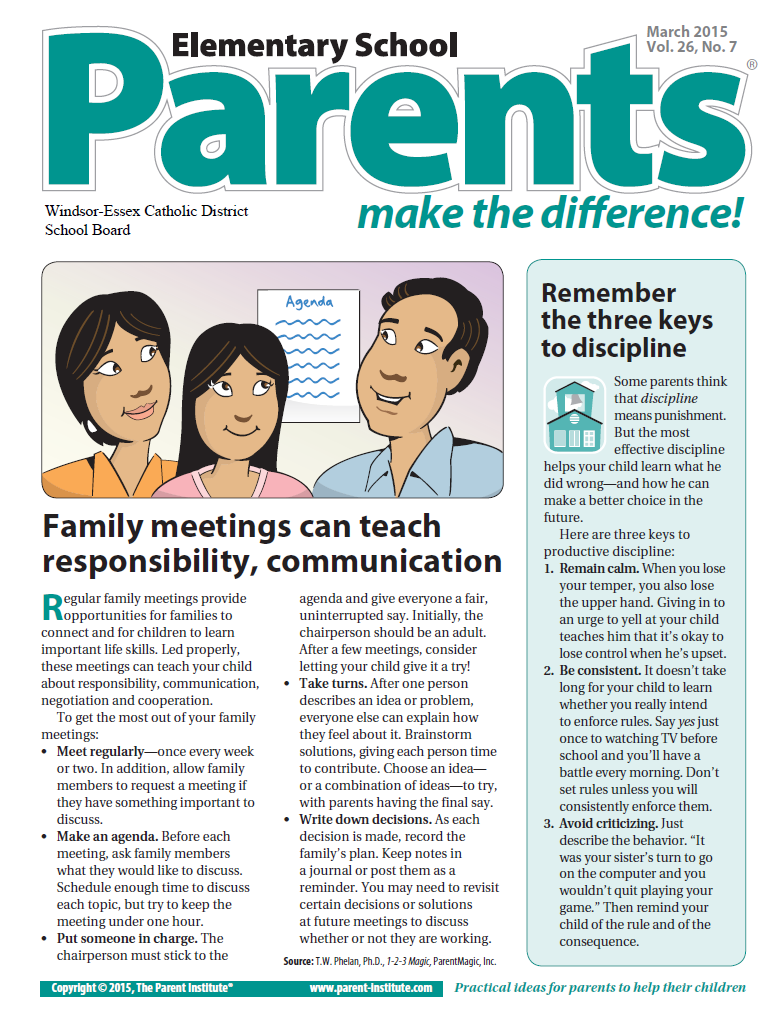 nine0017
nine0017
HOW TO EDUCATE A SANGUINE CHILD CORRECTLY
1. The main approach in raising a sanguine child is the principle that can be conditionally called "Trust, BUT VERIFY". A cute sanguine child always promises, but far from always fulfilling the promise, so you need to check whether he fulfilled his promise.
2. Control deeds and actions
3. Raising a child with a sanguine temperament, one should form stable attachments and interests in him. nine0017
4. Teach you to finish what you start.
5. Pay special attention to the quality of activities, avoid superficial and careless performance of tasks.
6. Praise deservedly, because there is a tendency to arrogance.
7. Adopt in communication with a sanguine person the spirit of lightness, fun and humor, which he most likes.
8. Remember that the cheerfulness, sociability and optimism of a sanguine person can turn into the other side of the coin and become a source of both his frivolity and inconstancy. nine0017
nine0017
Melancholic children. Characteristic.
shy and shy;
are lost in a new environment;
find it difficult to establish contact with strangers;
do not believe in themselves;
easily endure loneliness;
feel depressed and confused when they fail;
tend to withdraw into themselves;
get tired quickly;
have weak, quiet speech, sometimes reduced to a whisper; nine0017
involuntarily adapt to the character of the interlocutor;
impressionable to tears;
extremely susceptible to approval and blame;
make high demands on themselves and others;
prone to suspicion, suspiciousness
painfully sensitive and easily vulnerable
extremely touchy;
secretive and uncommunicative, do not share their thoughts with anyone;
inactive and timid;
meekly submissive; nine0017
Emotional stress for a melancholic child is almost the norm of life, since any little thing can upset and unbalance them.
Melancholics are extremely vulnerable and touchy, they are highly sensitive and suffer from self-doubt.
The melancholic baby will cry for any little reason, and even when we see no reason to cry at all. We do not see, but he will find something. Since we do not see the reasons for his suffering, we do not share the emotions of the baby, which only aggravates the situation, since melancholics are extremely vulnerable and touchy, they have increased sensitivity, and suffer from self-doubt. Melancholics tire quickly, and it takes them quite a long time to restore their nervous and physical energy. That is why participation in long-term games, especially complex ones, brings them to stress. In general, any situation that brings unexpected innovations or includes elements of competition is stressful for them. A typical melancholic reaction to stress is avoidance of communication and the desire for solitude, withdrawal into oneself and one's experiences. nine0017
For parents of a small, pronounced melancholic, the keys to a child can be patience and understanding. It is undesirable to send a melancholic baby to a kindergarten before he is three years old. You need to deal with him in a very dosed manner, carefully selecting tasks so that the difficulties increase gradually and he can cope with everything. This approach increases the child's self-esteem and increases his interest in classes.
It is undesirable to send a melancholic baby to a kindergarten before he is three years old. You need to deal with him in a very dosed manner, carefully selecting tasks so that the difficulties increase gradually and he can cope with everything. This approach increases the child's self-esteem and increases his interest in classes.
Parents who are aware of the problems of their child's temperament help him cope with himself and thus facilitate the task of his inner growth and development as a person. nine0017
HOW TO EDUCATE A MELANCHOLIC CHILD CORRECTLY
1. The main approach in raising a melancholic child is the principle that can be conditionally called "DO NO HARM".
2. In dealing with such a child and in educational influences, take into account the vulnerability of his psyche - do not shout and do not put pressure on him, express your dissatisfaction in an even, confident voice, do not call him names. 3. Remember that a melancholic child needs special attention, warm relationships, and help. Be kind and gentle with him. nine0017
Be kind and gentle with him. nine0017
4. Praise him more often and be generous with sincere words. Your child has a special intuition, and it is vital for him to feel that he is loved.
5. Encourage him even for minor successes and achievements.
6. Do not miss the opportunity to show your vulnerable child that you greatly appreciate the slightest manifestation of his care.
7. Never make remarks to your child in public - this provokes the development of serious complexes.
8. When communicating with your child, use tactile contact more often: touch him, stroke his head, etc.
9. Do not forget about rapid fatigue due to weakness of nervous processes - do not overload him with developmental tasks, pause while doing homework. Remember that even games tire him and can bring him to stress.
10. Any competitive situation is stressful for a melancholic child, try to avoid them.
11. Do not demand from a melancholic what is impossible for him. Aim him at feasible activities and help them complete them on time, avoiding overwork in a timely manner. nine0017
Aim him at feasible activities and help them complete them on time, avoiding overwork in a timely manner. nine0017
12. Avoid giving orders to your child. they only slow it down.
13. Develop independence by giving your child what they can. With every manifestation of independence, encourage your baby, encourage with a warm word.
14. Be patient in developing activity, courage.
15. Encourage your child to take the initiative.
16. Develop your child's sociability.
17. Do not scare or bully your child. Scary stories, disturbing films and programs are contraindicated for a melancholic child. nine0017
18. Help get rid of fear by talking to your child about their feelings. Don't make fun of your fears.
19. When choosing an educational institution, remember that a melancholic person is most suitable for a smooth activity that requires perseverance and patience (work). Even monotonous work does not bother him.
20. In a familiar environment, in a friendly team, he successfully performs the assigned work, studies.
Remember that if measures are not taken to mitigate the extremes in the behavior of a melancholic, then there may be a danger of developing isolation, aloofness, extremely pronounced vulnerability, a tendency to experience everything, even the most ordinary phenomena, with unusual acuteness. nine0017
Phlegmatic children. Characteristic.
calm and cool-headed;
consistent and thorough in business;
cautious and prudent;
know how to wait;
do not like to talk in vain;
have calm, even speech with stops, without sharply expressed emotions, gestures and facial expressions;
restrained and patient;
bring the work started to the end;
do not waste energy;
strictly adhere to the developed routine of life,
know how to restrain impulses;
not susceptible to approval and blame;
non-malicious, show condescending attitude to barbs in their address;
permanent in their own interests;
slowly get into work and switch from one thing to another;
equal in relations with everyone;
love punctuality in everything;
find it difficult to adapt to a new environment; nine0017
Children with a predominance of phlegmatic temperament are the calmest children in the world. They are balanced and unruffled. They study and explore the world gradually, slowly and measuredly. Phlegmatic people cope well with difficulties.
They are balanced and unruffled. They study and explore the world gradually, slowly and measuredly. Phlegmatic people cope well with difficulties.
They really like tasks where they have to sit, think, reason, and be wiser. Already at the age of four, your phlegmatic baby can play chess with pleasure and read his first books. He will look at pictures for hours. And listen to your stories too. He really likes to talk, although any conversation with a phlegmatic child is more of an adult monologue. Do not be alarmed if it seems to you that the child starts talking later. It has nothing to do with the problem of intelligence. He just doesn't rush to speak. nine0017
The only thing that can shock a phlegmatic is speed tasks. They need time and rest to be successful. Keep this in mind when working with a child, never try to "speed up" or "adjust" him. As soon as you demand from the little phlegmatic to do something quickly, especially immediately, you will get an unfortunate crying child, completely unable to do anything.
HOW TO EDUCATE A PHLEGMMATIC CHILD CORRECTLY
1. The main approach in raising a phlegmatic child is the principle that can be conditionally called "DO NOT Rush". Remember that such a kid can work under time pressure, he needs an individual pace, he cannot be adjusted, he will calculate his time and do the job. Do not demand cosmic speeds from your child. nine0017
2. Teach your child to manage time rationally.
3. Do not put pressure on your child. under pressure from adults, he only becomes more clumsy and passive.
4. Don't call your child "kopusha", especially in front of other people.
5. Remember that phlegmatic children are in great need of approval.
6. When educating a sedentary phlegmatic person, it is important to develop interest in movements, play games with him where speed of movement, accuracy, dexterity are necessary, and encourage him when he fulfills any rules of the game. nine0017
7. Slow phlegmatic people should try to gradually develop the ability to quickly switch from one type of activity to another. Learn to switch attention when performing various tasks
Learn to switch attention when performing various tasks
8. Try to develop the child's curiosity (read interesting educational books with him, watch scientific and educational films, visit museums, discuss the information received).
9. Encourage your child to take the initiative.
10. Teach your child to express his emotions and feelings more fully: if he is sad, do not forbid him to cry, if he is happy, allow him to rejoice to the fullest, etc.
11. Involve your child in joint activities (both in children's and adult groups).
12. Teach your child social skills.
One cannot say that some type of temperament is better and some is worse. Not one temperament loses or yields to another, they are completely different types. It’s just that one temperament can be won in some specific life situations than another. Temperament is an innate personality trait and does not change throughout life. In conclusion, I want to remind you that you need not to suppress the temperament of your child, but to learn how to manage it. Be observant and considerate towards your baby. Try to understand your child as much as possible, and you can always come to an understanding. I wish happiness to you and your children. nine0017
Be observant and considerate towards your baby. Try to understand your child as much as possible, and you can always come to an understanding. I wish happiness to you and your children. nine0017
the material was prepared and designed by a teacher-psychologist
Vasilchishina Natalia Pavlovna
using materials from the website
- I-NURE
Choleric, sanguine, melancholic, phlegmatic - some very familiar words, but not everyone can remember what they mean. These are all designations of different types of temperament, that is, the basis of our behavior. So why do we need to know and be able to define these types? What will change from this? nine0017
The answer is very simple. The ability to find a common language with different people is the basis of any communication, because it is not always possible for us to make deals, maintain a conversation and get what we want from different people. It is knowledge about those and peraments that helps to choose the very key when communicating.
It is knowledge about those and peraments that helps to choose the very key when communicating.
WHAT IS "TEMPERAMENT" FROM A SCIENTIFIC POINT OF VIEW?
Temperament is a clear personality characteristic that determines its activity throughout life and is directly related to the type of higher nervous activity. nine0017
Temperament is often confused with character, but these are different concepts. Temperament is laid in us even before birth, in contrast to the character that develops throughout life.
Temperament does not change with time, as it might seem at first glance. It is important to note that in the modern world there are practically no people left with pure types, each personality contains several types, and sometimes all can be traced, just with varying degrees of manifestation.
In his teachings, Hippocrates, who became the founder and classifier of people according to temperaments, substantiated his theory as follows: each person has his own dominant "life juice". Cholerics are dominated by bile (chole), which does not allow full control of emotions. Sanguine people are ruled by blood (sangua), which gives them fun and energy. Melancholic people are subject to the influence of "black bile" (melane chole), which inspires them with fear, sadness and self-flagellation. And Phlegmatics are controlled by lymph (phlegm), which acts as a sedative. nine0017
Cholerics are dominated by bile (chole), which does not allow full control of emotions. Sanguine people are ruled by blood (sangua), which gives them fun and energy. Melancholic people are subject to the influence of "black bile" (melane chole), which inspires them with fear, sadness and self-flagellation. And Phlegmatics are controlled by lymph (phlegm), which acts as a sedative. nine0017
Let's look at each type in more detail.
CHOLERICS
This type of people correspond to such characteristics as impulsiveness, irascibility, slight irritability, dynamism and drive. Choleric very often occupy high and leadership positions. They are active, purposeful, self-confident and risky. This type is focused on solving problems and communicating with people, but their weakness is maintaining relationships and excessive aggression. nine0017
SANGUINES
These are optimists in life who walk with their heads held high and a radiant smile. A sanguine person is a person of opportunity or a person with perspectives. Communication with people is their main feature, as well as talkativeness and a desire to be in the spotlight. Does everyone have that friend who tells the funniest stories and is impossible to talk to? So, this is sanguine. They are sensitive, emotional, always late and have heightened intuition.
Communication with people is their main feature, as well as talkativeness and a desire to be in the spotlight. Does everyone have that friend who tells the funniest stories and is impossible to talk to? So, this is sanguine. They are sensitive, emotional, always late and have heightened intuition.
PHEGMATICS
Slow, unhurried, insensitive, calm, they are stable in everything - in studies, in work, in relationships and preferences. They are really good listeners. But they are not strong in communication with other people. Phlegmatic people feel uncomfortable in large companies, and new acquaintances are always stressful, but among their friends they feel confident. They are reliable and thoughtful, “hovering somewhere in the clouds” is definitely about them.
MELANCHOLIC
These are real analysts. They are always watching everyone, drawing conclusions and remembering. Melancholics are inherently realists with a high degree of pessimism. Sad, sad, self-contained, more touchy, overly impressionable.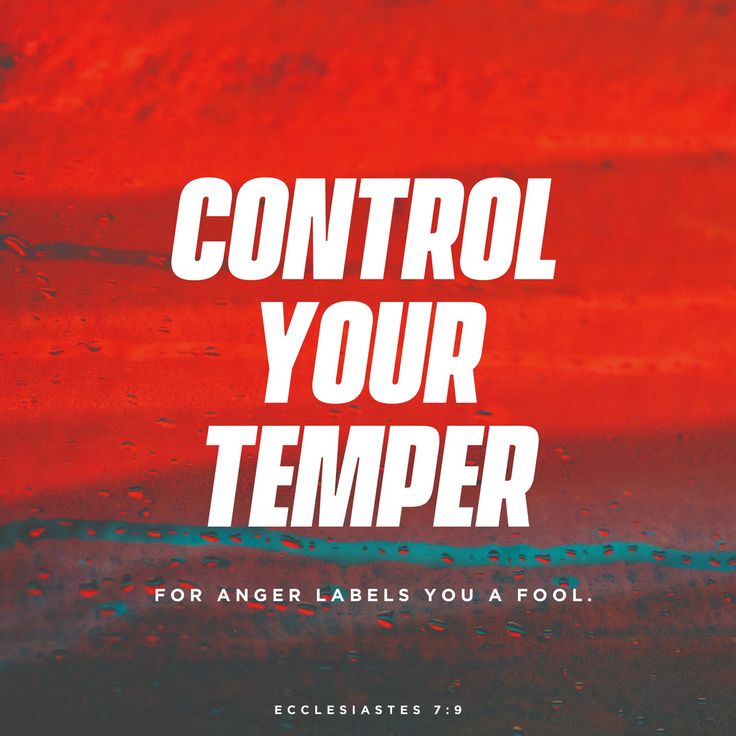 The main drawback is the inability and fear of communicating with people, this aspect of everyday life is difficult for melancholic people, because of which they often suffer. Melancholic people always run into facts and logic, because for them such concepts as intuition, chance and chance are incomprehensible nonsense. nine0017
The main drawback is the inability and fear of communicating with people, this aspect of everyday life is difficult for melancholic people, because of which they often suffer. Melancholic people always run into facts and logic, because for them such concepts as intuition, chance and chance are incomprehensible nonsense. nine0017
KEY POINTS IN COMMUNICATION
Being able to determine the temperament of a person with whom, for example, you have to make a deal, gives great advantages. Indeed, for each type (more precisely, for the dominant type among the rest in the temperament of the individual) there are key moments in communication.
FOR CHALERIC
For example, choleric people hate to go into details, for them the most important thing is the result of your or his actions. They also love to do everything in a hurry, and that is why they often lash out at those who do everything slowly, or even at a normal pace. nine0017
FOR SANGUINES
Sanguine people love to talk, and this is both a positive trait and a negative one.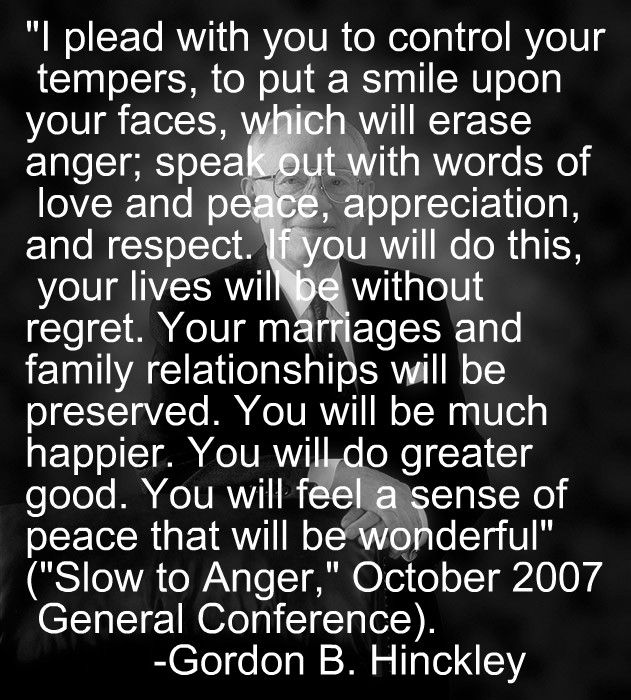 They also make terrible listeners, so the main advice would be to omit all the details if possible and bring the main information to their mind, preferably several times in a row. Sanguine people never start anything on time, so if you want to get feedback from them on time, you need to remind yourself more often.
They also make terrible listeners, so the main advice would be to omit all the details if possible and bring the main information to their mind, preferably several times in a row. Sanguine people never start anything on time, so if you want to get feedback from them on time, you need to remind yourself more often.
FOR PHLEGMATIC
Phlegmatic people tend to worry about everything that might happen. It is difficult to pull them out into the street even for a walk, because at home under the covers they are more comfortable, to say nothing about trips and travels. Initiative is definitely not about them. You can safely take the planning part of their daily work and homework and tell them what needs to be done. nine0017
FOR MELANCHOLICS
Melancholic people take everything very seriously. And if you want to impress them, then you need to try and work out a detailed plan of action - a couple of graphs, several tables and at least one backup plan. Fantasizing and making plans for the future sounds like absurdity to them, so when talking, it is best to rely on facts.
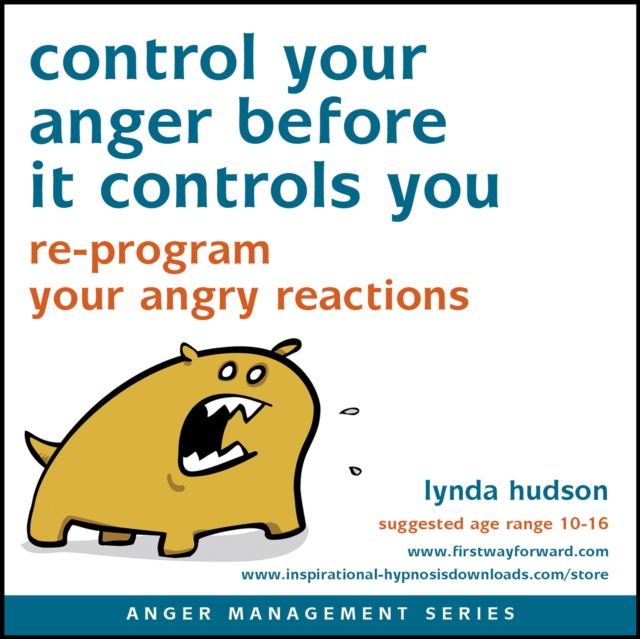 And you can communicate your feelings without being verbally or physically abusive. Even if someone is pushing your buttons, you always have a choice about how to respond.
And you can communicate your feelings without being verbally or physically abusive. Even if someone is pushing your buttons, you always have a choice about how to respond.